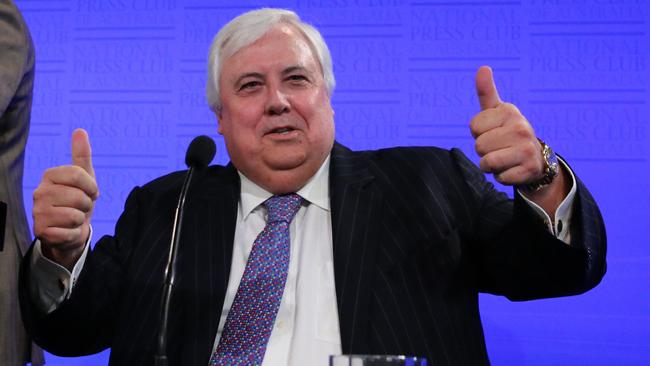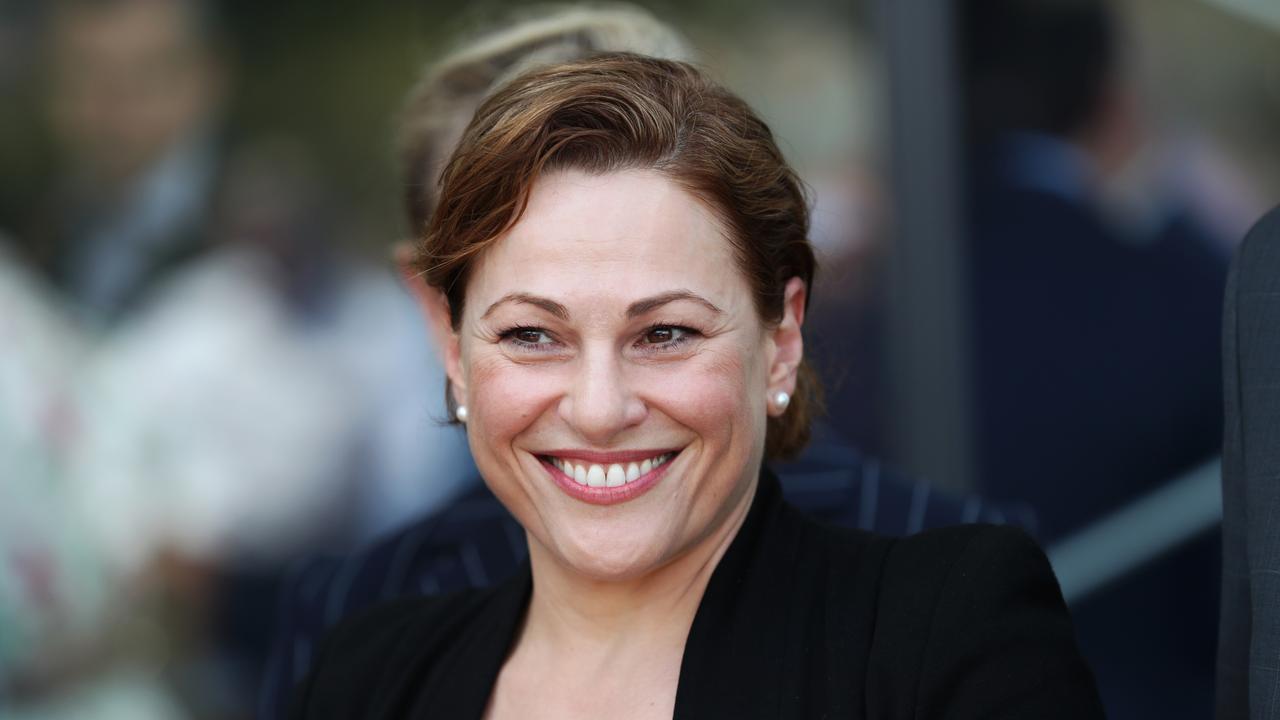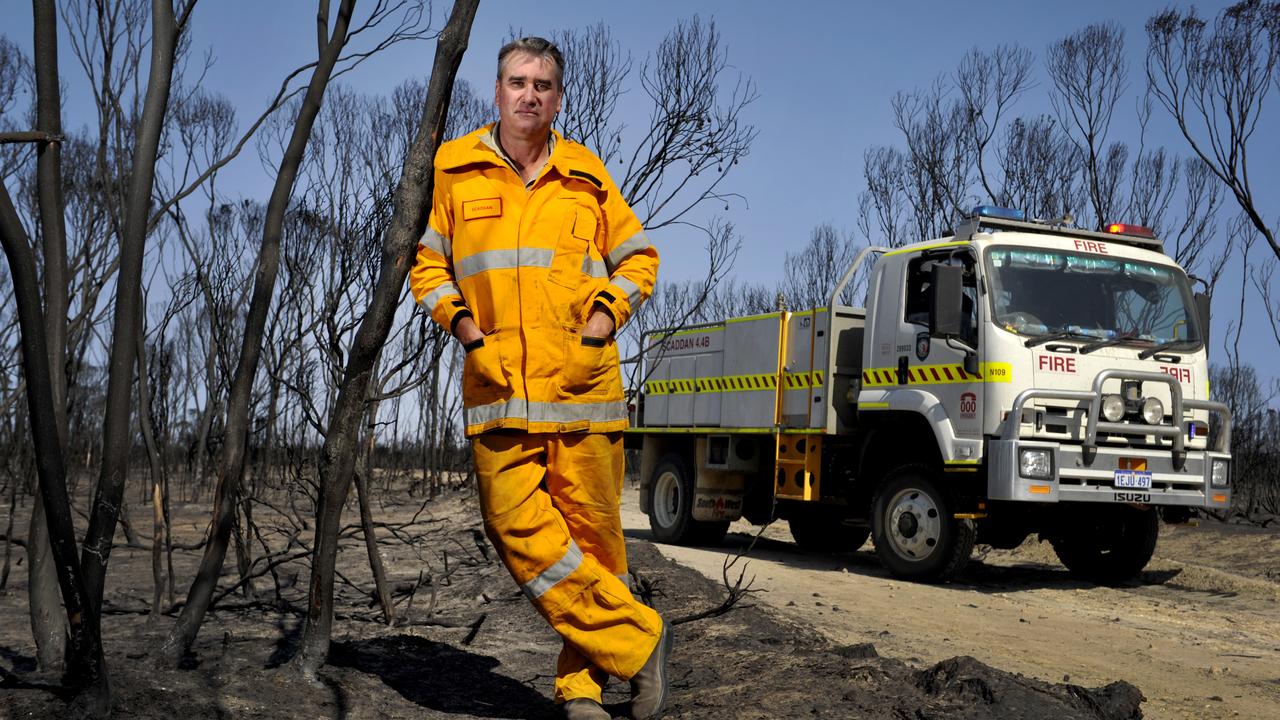A simpler time for Clive Palmer — just call Russ Hinze
THIRTY years before he went to Canberra, Clive Palmer was using the same techniques as a Queensland property developer.

THIRTY years before he took his own brand of legal-political-business brinkmanship to Canberra, Clive Palmer was using the same techniques as a Queensland property developer aligned with the Bjelke-Petersen government.
Unlike now, the young Mr Palmer had no need to create his own political party because he had direct influence in government and a powerful ally in state planning minister Russ Hinze, who helped add value to his projects.
As just declassified Queensland cabinet documents reveal, Mr Palmer — then a rising star in the National Party — used political connections to have Hinze intervene in a council dispute and approve a development. It is the same approach to business and politics that years later led to a falling out with the Queensland conservatives, prompting Mr Palmer to establish the Palmer United Party, and take his own seat in federal parliament.
If the Newman government ministers who blocked Mr Palmer’s advances wanted an example of how he did business, they need look no further than Little Mountain, in the back blocks of Queensland’s Sunshine Coast.
The residents of this hamlet, where Mr Palmer bought 2.8ha in 1983, were jubilant when they heard the fast-talking city businessman had failed in his bid to get approval for 60 townhouses.
Their celebrations were short-lived. Within days, Mr Palmer had used his National Party connections to convince the pro-development state government to intervene. Hinze — later accused in the Fitzgerald inquiry of accepting bribes from other developers — ultimately overturned the council’s decision, giving Mr Palmer grounds to fight it out in the courts. He did so for the best part of 30 years.
For the first time, it can be revealed Mr Palmer, then a campaign official and future National Party spokesman, donor and life member, directly lobbied the government for support.
In June 1984, cabinet gave Hinze authority to take over the approval process that had led Landsborough Shire Council to reject Mr Palmer’s project “by a very narrow vote”.
“Following representations by the developer, cabinet decided a prima face case had been made out for the proposed development and this was the ground (sic) for cabinet’s decision,” states one document stamped “confidential”.
Mr Palmer, named in the documents, would go on to become a donor and life member of the then National Party of Queensland (later the Liberal National Party).
When claims of cronyism were raised, he denied asking Hinze to intervene in the dispute and suggested he was being smeared for his political beliefs.
Cabinet was told Mr Palmer and the council had come to agreement on several development conditions except sewerage reticulation, which the local government department had sought to resolve. Cabinet was also briefed on the numerous objections of local residents, primarily that such a development was inappropriate for a “rural-residential area”.
Hinze told cabinet he was “of the view that the grounds of objection are not such as to warrant rejection of the proposal”.
Hinze, whose portrait hangs in Mr Palmer’s office, resigned in 1988 amid allegations he had accepted bribes from developers, but died three years later, before charges could be brought.
As detailed in the biography Clive: The Story of Clive Palmer, the businessman would not let the Little Mountain project die. In 2002, he sought to build eight townhouses, an office and a carport on the land, but was again knocked back by council.
He then took the matter to the Supreme Court, then the Court of Appeal, but gained no legal support for his development plans.
The land at Little Mountain, has yet to be fully developed.
The Australian’s Sean Parnell is the author of Clive: The Story of Clive Palmer.


